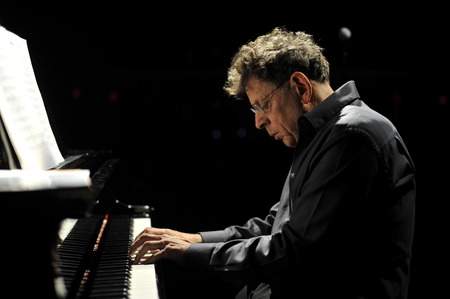
Through his operas, his symphonies, his compositions for his own ensemble, and his wide-ranging collaborations Philip Glass has had an extraordinary and unprecedented impact upon the musical and intellectual life of his times.
His operas play throughout the world’s leading houses, and rarely to an empty seat. Glass has written music for experimental theater and for Academy Award-winning motion pictures His associations, personal and professional, with leading rock, pop and world music artists date back to the 1960s. Indeed, Glass is the first composer to win a wide, multi-generational audience in the opera house, the concert hall, the dance world, in film and in popular music -- simultaneously.
Glass was born in 1937 and grew up in Baltimore. He studied at the University of Chicago, the Juilliard School and in Aspen with Darius Milhaud. Finding himself dissatisfied with much of what then passed for modern music, he moved to Europe, where he studied with the legendary pedagogue Nadia Boulanger and worked closely with the sitar virtuoso and composer Ravi Shankar. He returned to New York in 1967 and formed the Philip Glass Ensemble – seven musicians playing keyboards and a variety of woodwinds, amplified and fed through a mixer.
The new musical style that Glass was evolving was eventually dubbed “minimalism.” Glass himself never liked the term and preferred to speak of himself as a composer of “music with repetitive structures.”
There has been nothing “minimalist” about his output. In the past 25 years, Glass has composed more than twenty operas, large and small; eight symphonies (with others already on the way); many concertos, soundtracks to films; string quartets; a growing body of work for solo piano and organ. He has collaborated with many legendary artists, presents lectures, workshops, and solo keyboard performances around the world, and continues to appear regularly with the Philip Glass Ensemble.

















